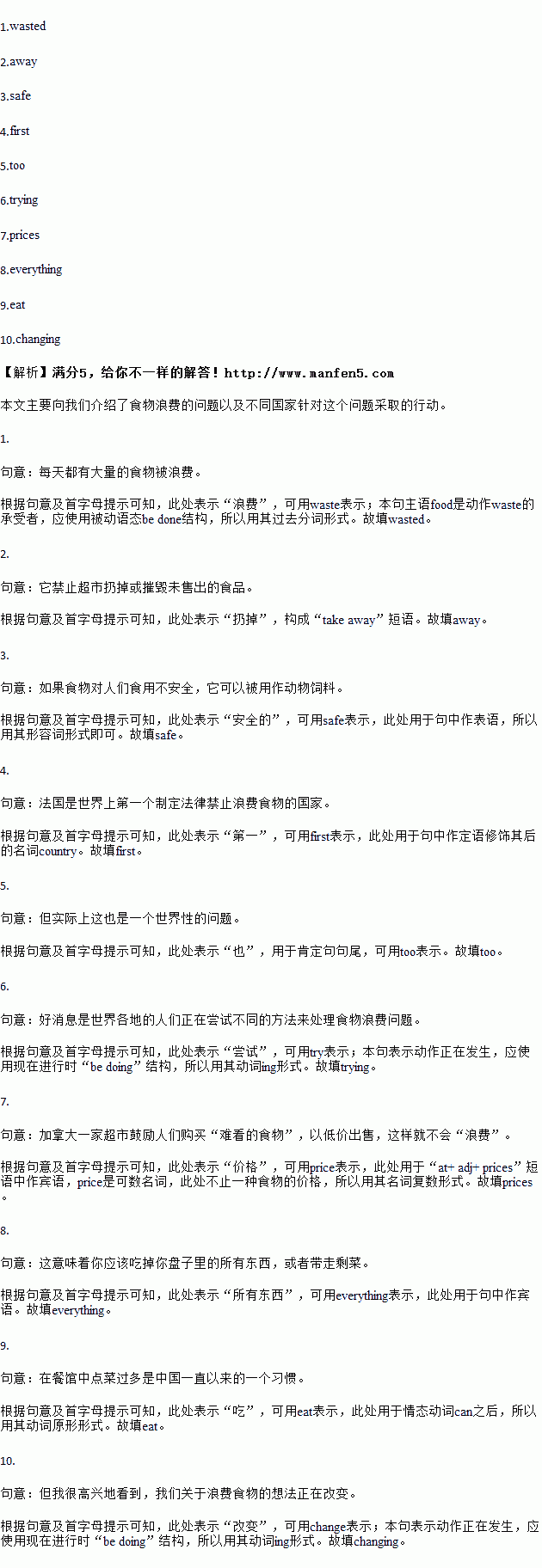题目内容
根据短文内容及首字母提示,填写所缺单词,使短文意思完整每空限填一词。
If you open your fridge, you may see some leftovers (剩菜剩饭), and maybe you will throw them away in the end. If the food in a supermarket is not fresh any more or is near the “sell-by” date, it goes into dustbins (垃圾桶) too. Every day, large amount of food is w1..
To reduce food waste, France passed new law (法律). It forbids (禁止) supermarkets to throw a2. or destroy unsold food. Instead, they must give it to charities (慈善机构). If food that isn’t s3. for people to eat, it can be used as animal feed. If not, the supermarkets will face fines (罚款) of up to 75.000 euros (around 542.200 yuan) or two years in prison (监狱). The law also encourages educational programs for schools and businesses about food waste.
France is the f4. country to make a law that forbids wasting food, but it is actually a worldwide problem, t5.. The good thing is that people around the world are t6. different ways to deal with the food waste problem. Galdakao, Spain, put a public fridge in the center of town. Anyone can drop off food or leftovers and anyone can come and take them. A supermarket in Canada encourages people to buy “ugly food” by selling it at lower p7. so it won’t be wasted.
In China, we have the “clear your plate campaign” (光盘行动). This means you should eat e8. on your plate or take away the leftovers.
“Ordering (点菜) much more than what people can e9.in restaurants has been a habit in China for a long time,” said Liu Qinglong, professor at Tsinghua University. But I’m happy to see that our thoughts about wasting food are c10..

